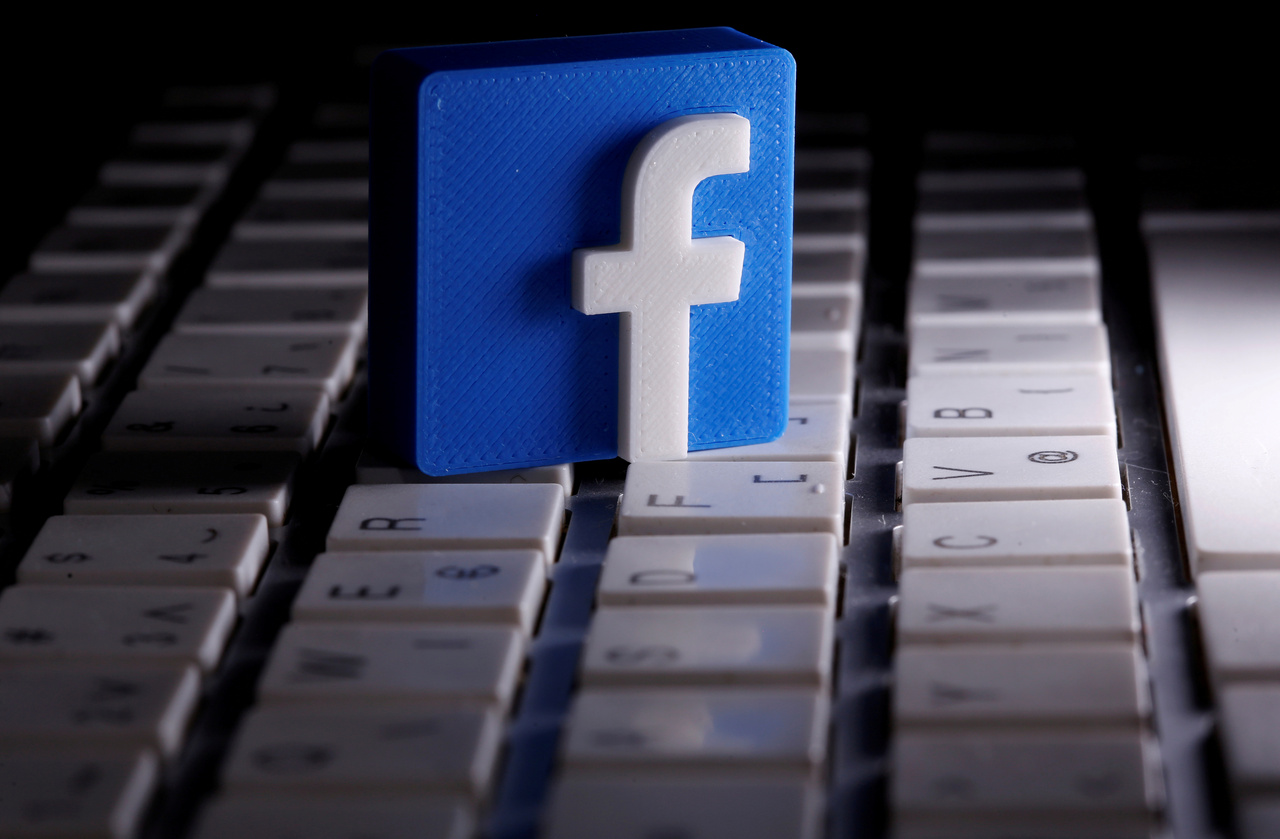Facebook takes action against 'inauthentic' accounts ahead of Singapore general election
Sign up now: Get ST's newsletters delivered to your inbox

Updated last October, Facebook's policies list three types of inauthentic behaviour.
PHOTO: REUTERS
Follow topic:
SINGAPORE - Social media giant Facebook said on Thursday (June 11) that it has taken action against several accounts in Singapore for what it called "inauthentic behaviour", as it laid out several steps it said it is taking to protect the integrity of the upcoming general election.
The company's head of public policy in Singapore, Ms Clara Koh, told reporters during a virtual press briefing that a set of accounts was found to have violated its inauthentic behaviour policies and was picked up as part of ongoing, proactive sweeps of its platforms.
Ms Koh said the accounts had misrepresented themselves, but she declined to provide details about the specific violations committed, the actions taken or how many accounts were involved.
"Ahead of the election, we have been doing sweeps to ensure that we remove accounts that are impersonating candidates (and) elected officials," Ms Koh said.
"We will continue to do our proactive work to look for, remove, or at least take action against accounts that are misrepresenting themselves on our platform."
Updated last October, Facebook's policies list three types of inauthentic behaviour.
The first involves financially motivated activity like spam, or fake engagement tactics, and Facebook routinely takes action against such behaviour, it said in a post on its website.
These often unannounced actions may include temporary restrictions, warnings, down-ranking or removal.
The company also said it cracks down on coordinated inauthentic behaviour that seeks to manipulate public debate using fake accounts. This can come in the form of domestic, non-government campaigns, or influence operations conducted on behalf of foreign or government actors. It is not clear if the inauthentic accounts discovered here were part of any coordinated campaign.
Dedicated teams were set up by Facebook last July to focus on Singapore's next general election and Ms Koh said the teams focus on the behaviour of accounts, as the content that is posted may not always be problematic. Facebook also relies on tip-offs from the Government or trusted partners in civil society to detect fake accounts.
Besides removing fake accounts and threat actors from its platform, Facebook also aims to reduce the spread of fake news, and has added news agency Reuters to its list of third-party fact checkers, which also includes news wire Agence France-Presse.
To counter the risk of foreign interference, Facebook also enhanced its advertisement transparency measures here in September last year.
Advertisers are required to confirm their identity and location, and disclose who is responsible for advertisements relating to social issues such as civil and social rights, immigration, crime, political values and governance.
Facebook is also launching an Election Day reminder service that will direct users to official information on the Election Department's website.
With the next general election likely to be held during the Covid-19 pandemic, much of the campaigning is expected to be held online and Facebook has been teaching candidates how to use its platforms and tools.
Said Mr Aidan Hoy, public policy manager for Facebook's Election Project: "Covid-19 means a lot of activity starts coming online, and our local teams here in Singapore have likewise been re-engaging with political parties, making sure that they can use social media effectively."
Facebook has in recent years been in the spotlight over the potential for its platform to be used as a tool by foreign forces seeking to influence elections - most notably in the 2016 United States presidential election, which saw alleged Russian interference.

